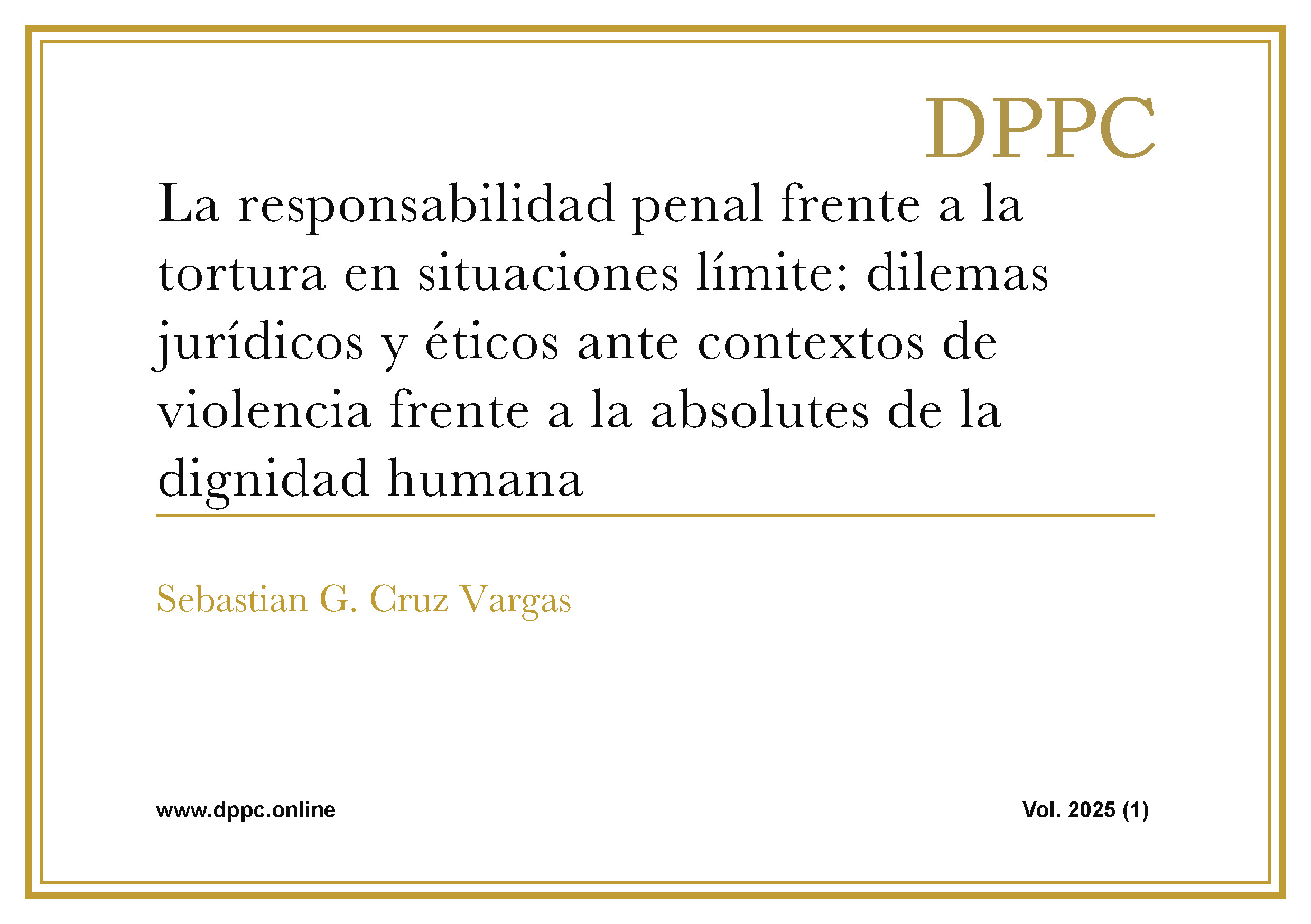Abstract
This paper analyses the legal and ethical dilemmas faced by criminal law in so-called “ticking bomb” or extreme situations, examining the criminal responsibility of the torturer when torture is presented as the only alternative to prevent imminent harm to fundamental legal interests. The study begins with an analysis of such scenarios in the contexts of terrorism and public insecurity in Peru, where torture tends to emerge as a recurring yet disproportionate response. This discussion is illustrated by violations of life, physical integrity, and other essential rights, through the examination of emblematic cases such as the “ticking time bomb” hypothesis and the Gäfgen v. Germany case. A technical-legal assessment then follows, focusing on grounds of justification (unlawfulness) and excuses (culpability), while clarifying their normative limits under both international and Peruvian law, in order to better delineate their relevance in cases of torture. Finally, the article pursues its main objective: to shed light on the complexity of criminally qualifying such extreme acts in limit situations, through a critical reflection on the use of torture as the sole means in a critical scenario, in light of the ethical coherence and normative sufficiency of the Peruvian criminal justice system when confronted with such exceptional cases.


